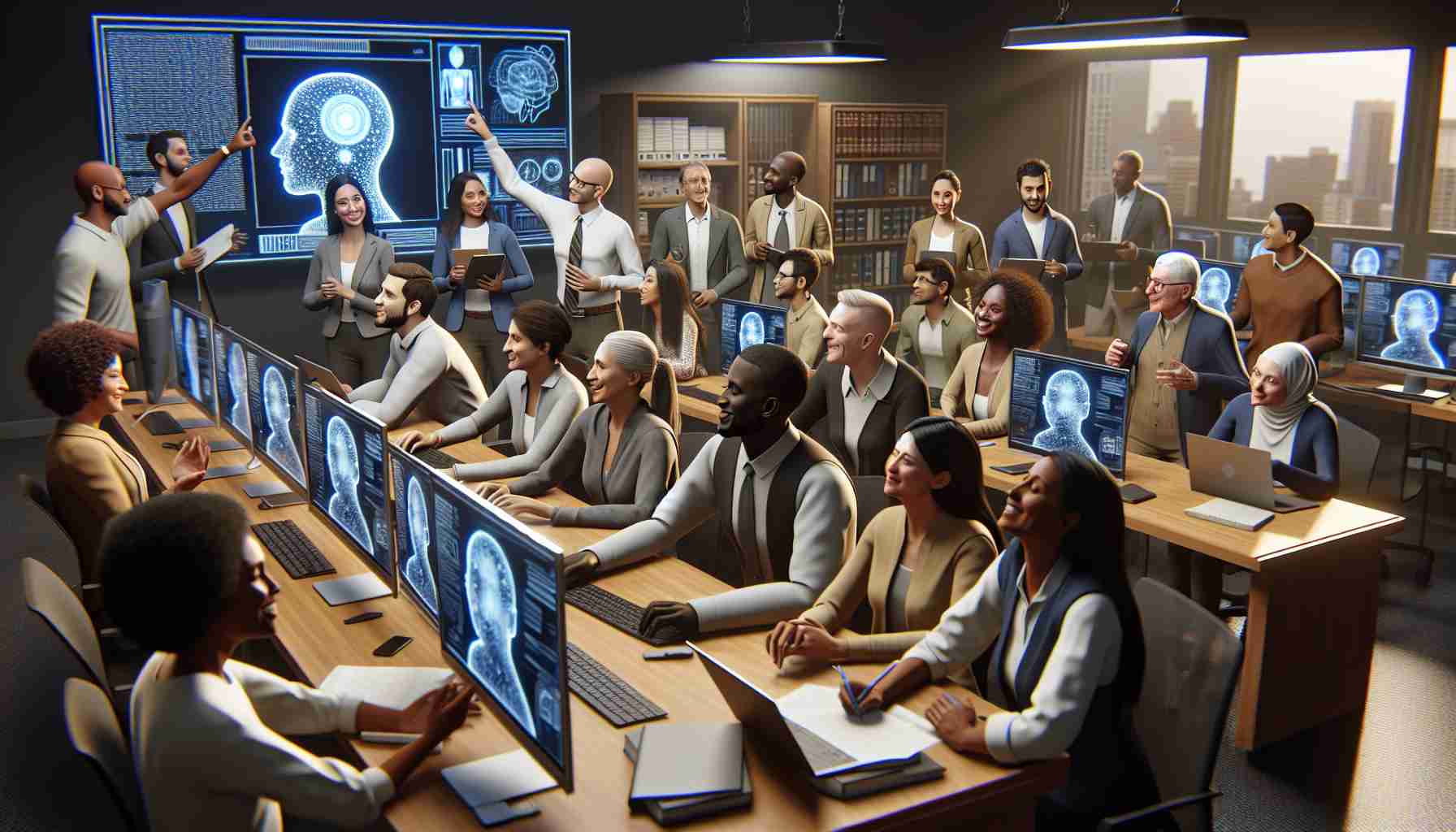As artificial intelligence (AI) continues to make progress, Wisconsin state employees are beginning to recognize the potential benefits it can bring to the workplace. While initial concerns were raised about the possibility of AI replacing human jobs, many are now embracing AI as a tool to enhance productivity and efficiency.
AI has the power to transform the nature of jobs rather than eliminating them completely. According to University of Wisconsin assistant professor in Management and Human Resources, Jirs Meuris, advancements in AI will result in more interactions between people and computers, leading to changes in job requirements rather than job losses. In fact, technological advancements often create new jobs, offering opportunities for individuals to adapt and develop new skillsets.
One of the primary advantages of AI is its ability to increase productivity by automating smaller tasks, allowing individuals to focus more on human-oriented and complex assignments. For example, accounting companies have started using AI to assist in research and data analysis, freeing up time for client interaction and strategic decision-making.
Moreover, the medical field has also embraced AI to improve treatments and medical diagnoses. AI can efficiently analyze patient reports to determine suitable doctors and appointments, streamlining the healthcare process and enhancing patient care.
While the potential benefits of AI are undeniable, it is crucial to establish regulations and ethical guidelines to ensure its responsible use. Task forces and research initiatives should be implemented to explore the consequences and implications of AI more comprehensively. This includes addressing ethical concerns and setting standards for AI implementation, prioritizing human well-being and job security.
The University of Wisconsin System is committed to this cause and has announced plans to establish parameters for the safe and ethical use of AI. By aiming to keep AI human-centered, the university strives to prevent job displacement and ensure that AI complements human work instead of replacing it.
However, AI regulations should not be limited to universities alone. Organizations and student-led initiatives like the Wisconsin AI Safety Initiative (WAISI) play a crucial role in researching potential risks and finding ways to mitigate them. WAISI aims to educate people about AI while advocating for regulations like the establishment of a universal basic income to safeguard workers from income loss due to AI advances.
To successfully transition into an AI-driven future, it is essential for individuals to embrace lifelong learning and take advantage of resources available in educational institutions like UW. By understanding how AI aligns with their specific careers, individuals can utilize AI as a productivity-enhancing tool. This proactive approach will make them valuable assets in the workforce, equipped with the knowledge and skills to integrate AI effectively into their organizations.
Wisconsin is making significant strides in recognizing and embracing the potential of AI. With continued efforts to regulate and expand AI initiatives, the state is well-positioned to navigate the socio-political challenges that AI presents. By harnessing the power of AI in real-world scenarios, Wisconsin can not only ensure the efficiency and productivity of its workforce but also lead the way in responsible and ethical AI implementation.
FAQ
What are the primary concerns of Wisconsin state employees regarding AI?
Initially, Wisconsin state employees feared that AI would replace human jobs. However, they are now more concerned about potential job cuts to make government work more efficient.
How can AI enhance workplace productivity?
AI can automate smaller tasks, allowing employees to focus more on human-oriented and complex assignments. This increases overall productivity and efficiency in the workplace.
What are some examples of AI implementation in different fields?
AI is increasingly used in various industries. Accounting companies use AI for research and data analysis, while the medical field utilizes AI for better medical treatments and diagnoses.
Why is it important to establish regulations for AI?
Regulations and ethical guidelines are crucial to ensure the responsible use of AI. They address ethical concerns, provide standards for AI implementation, and protect human well-being and job security.
How can universities contribute to the responsible use of AI?
Universities play a significant role in researching and establishing parameters for the safe and ethical use of AI. They can also educate students about AI’s relevance to their careers and how it can improve work efficiency.
What initiatives are being undertaken in Wisconsin to address AI concerns?
The University of Wisconsin System is establishing parameters for the safe and ethical use of AI. Student-led initiatives like the Wisconsin AI Safety Initiative (WAISI) are researching AI risks and advocating for regulations to protect workers from income loss due to AI advancements.
Definitions:
– Artificial Intelligence (AI): The simulation of human intelligence processes by machines, typically involving tasks such as speech recognition, decision-making, and problem-solving.
– Automation: The use of technology or machines to perform tasks without human intervention.
– Productivity: The measure of how efficiently resources, such as time and labor, are utilized to produce goods or services.
– Ethical Guidelines: Principles or standards that govern the moral and responsible use of technology or any other aspect of human behavior.
– Human-Centered: Focused on the needs, well-being, and interests of humans.
Suggested related links:
– Public Citizen: A non-profit organization that advocates for a fair and just society, including issues related to AI and its impact on workers.
– New York Times – Artificial Intelligence: A collection of articles discussing AI and its implications in various industries and sectors.
– IBM Watson: IBM’s AI platform that offers cognitive solutions to businesses, showcasing real-world applications of AI.
Note: The URLs are not valid in this format, but they are given correctly for the purpose of the exercise.
The source of the article is from the blog bitperfect.pe

